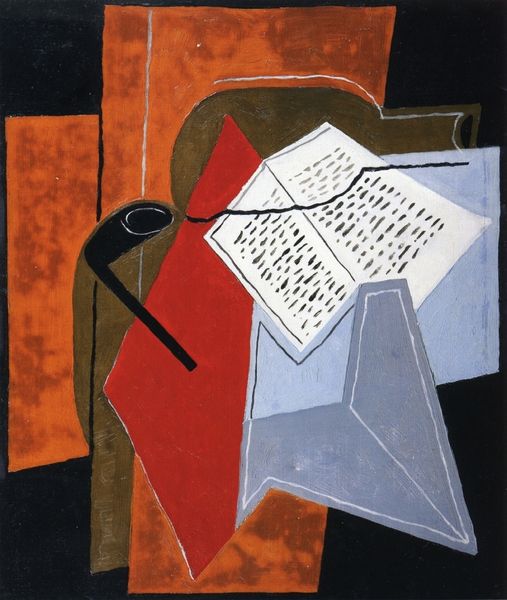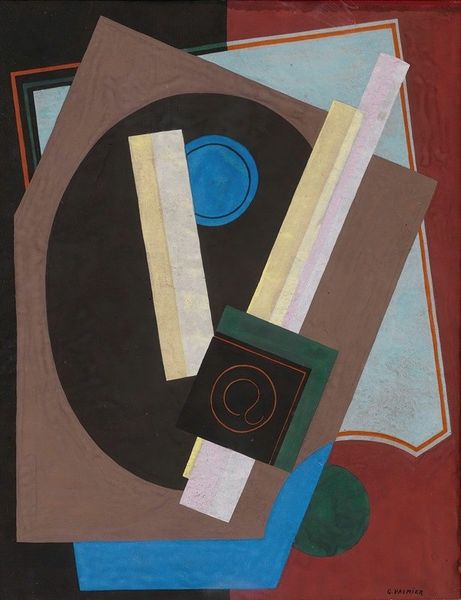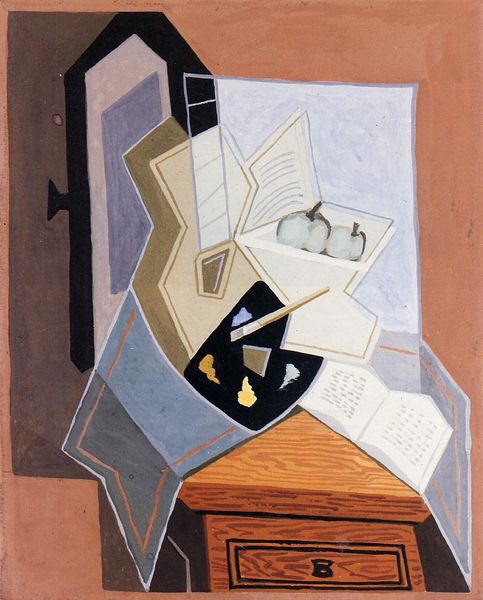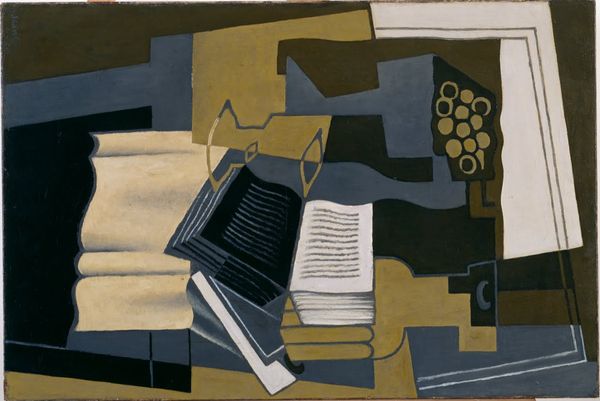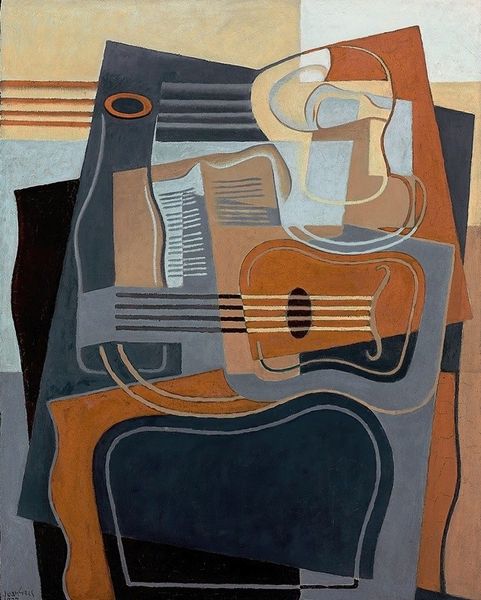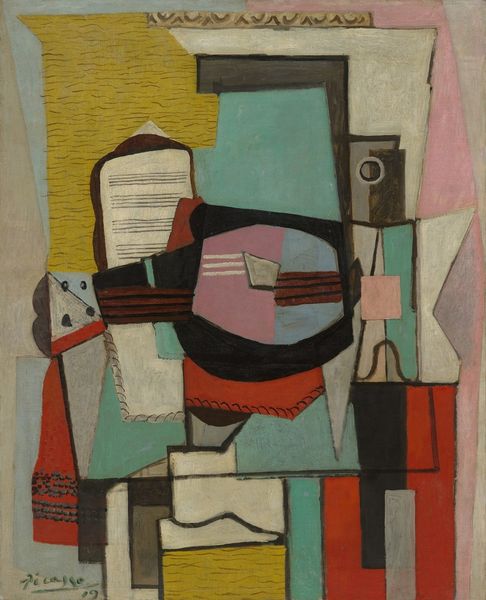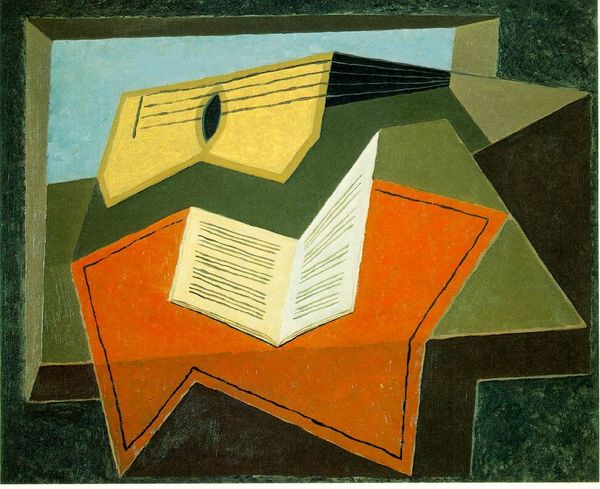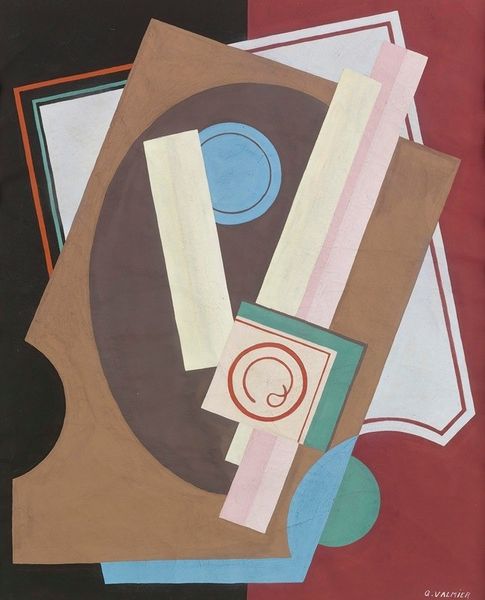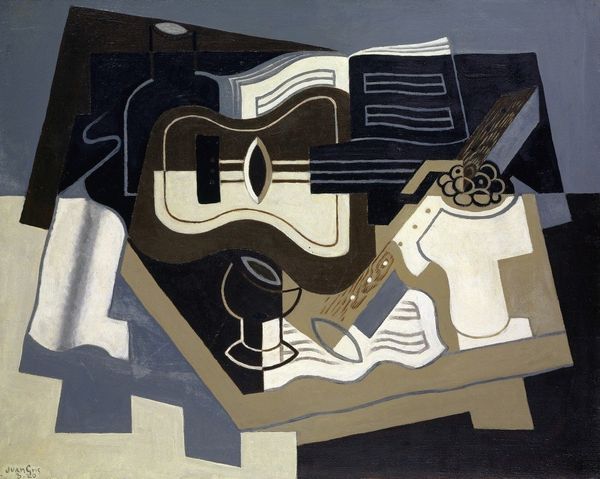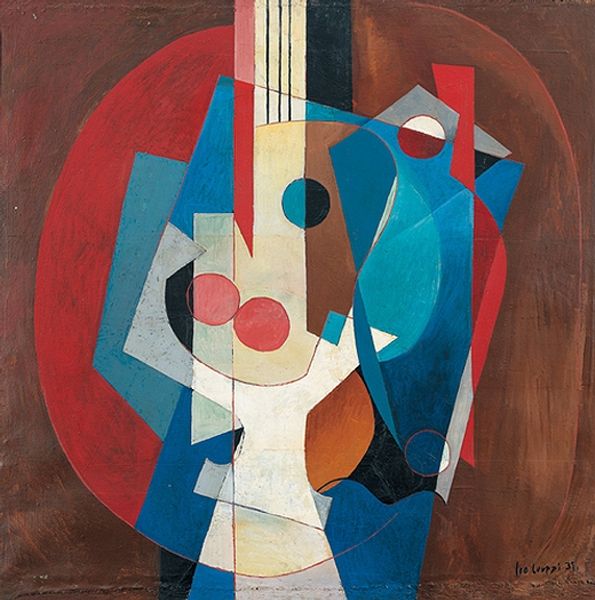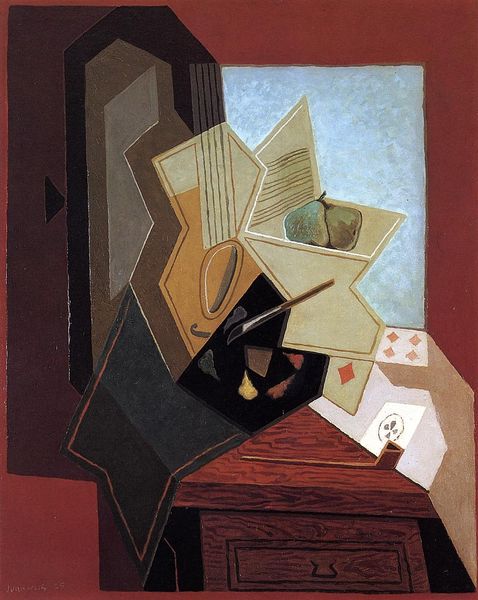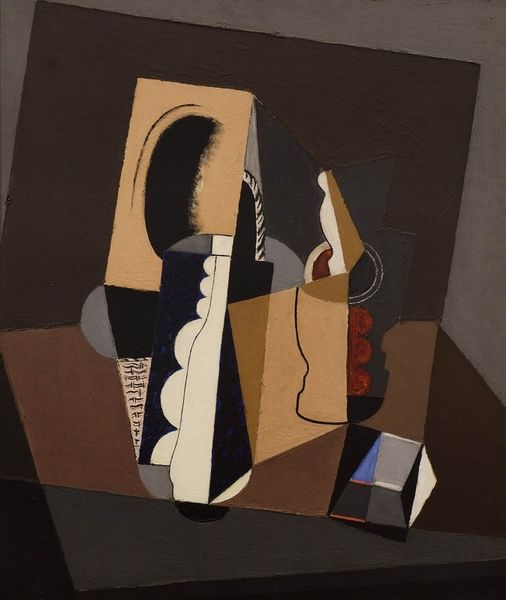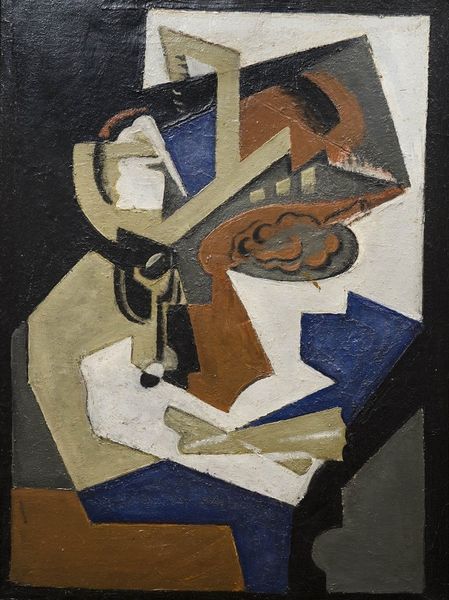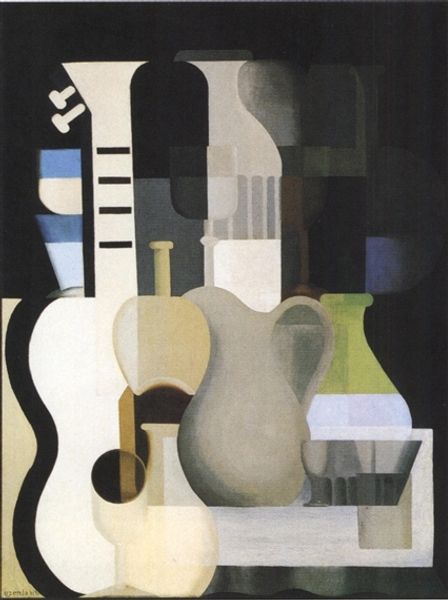
painting, oil-paint
#
cubism
#
painting
#
oil-paint
#
abstract
#
oil painting
#
geometric
#
abstraction
Copyright: Public Domain: Artvee
Juan Gris created 'La Mandoline Noire,' a still-life painting, during the height of his career in 1926. It embodies the cubist principles he advanced with Picasso and Braque. Gris, a Spaniard working in Paris, lived through a period of intense artistic experimentation and societal upheaval. The image shows a mandolin, a musical instrument often associated with leisure and entertainment. In the context of post-World War I Europe, this choice is especially relevant. The war had changed societal values. Artists like Gris questioned traditional forms of representation and the value of art itself. Gris once said, “I try to make concrete that which is abstract.” In this painting, the mandolin is not merely depicted; it is dissected and reassembled. This reflects a broader cultural interest in deconstructing established norms and exploring new perspectives. By focusing on geometric forms and flattened perspectives, Gris challenges viewers to reconsider their understanding of space and representation. The artwork captures the emotional complexity of an era marked by both trauma and innovation.
Comments
No comments
Be the first to comment and join the conversation on the ultimate creative platform.
